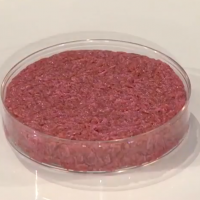Recent years have seen animal agriculture come under increasing scrutiny across scientific, policy and public spheres. Links to chronic diseases, environmental impacts, food safety concerns and animal welfare issues are amongst the many reasons that have brought livestock farming into the spotlight and have increased demand, particularly in higher-income nations, for alternatives to conventional meat, dairy and egg products.

This research examines a particular range of alternative products that have emerged over the last decade and are being promoted as more sustainable, ethical and healthy counterparts to conventionally-sourced animal products. Sometimes referred to collectively as ‘alt-proteins’, this movement encompasses edible insects, a new generation of plant-based products, and a group of ventures known as ‘cellular agriculture’ – so-called due to their use of tissue culture techniques and genetic modification of yeast cells to grow meat, dairy and other animal-based products outside (i.e. in-vitro) the animal body.
A defining feature of this latest alt-protein activity is the concentration of their development within the high-tech geographies and political economies of Silicon Valley, CA, the home of globally-renowned Big Tech companies such as Google, Apple and Facebook. Many of the alt-protein ventures have consequently launched through the funding streams and business models of tech start-ups, with many raising multi-billion dollar valuations and sporting investor portfolios with some of the biggest names in Big Tech and global business, such as Bill Gates, Vinod Khosla, Sergey Brin and Richard Branson.